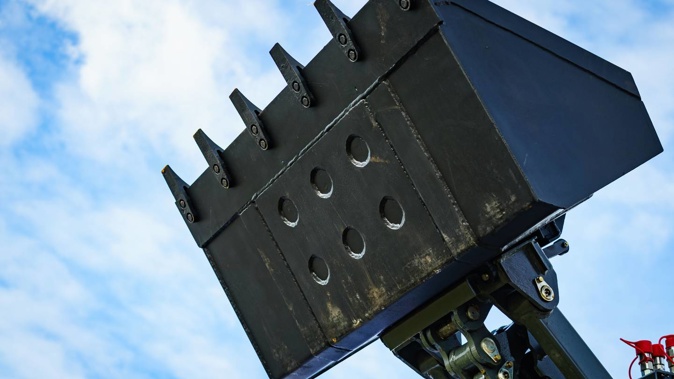

Two agricultural transport companies jointly fined $270,000 for a workplace incident that caused a worker permanent brain injuries say the penalty was too high.
Grant Bowling, in his 60s, was knocked out when he was hit and scooped up by the bucket of an agriculture vehicle at a Taranaki worksite in April 2020.
Westown Agriculture Limited and Westown Haulage Limited were jointly convicted of exposing an individual to risk of harm or illness last year.
Owned by David and Phillippa Thomas, the family-managed businesses operate in the agricultural transport industry and provide farm services from a shared site in New Plymouth.
The businesses were fined $270,000 for the incident and ordered to pay Bowling $50,000 reparation and $6806 for other losses.
But they have now turned to the Wellington High Court to appeal the ruling, arguing the $270,000 penalty was too high.
At today’s hearing, lawyer Joseph Lil submitted the fine was inconsistent with similar rulings.
Moments before the accident, Bowling, who did seasonal work for Westown Agriculture, was using an app on his phone to clock off from work at Westown Haulage.
While on his phone, he had his back turned to a colleague who was driving a telehandler, a vehicle similar to a tractor used for lifting loads.
The colleague became distracted, looking over his shoulder while continuing to drive forward slowly.
Bowling was struck from behind by the bucket of the telehandler, attached to the vehicle’s arm, causing him to fall into it.
While unconscious for a time, he came to and was helped out of the bucket by another worker.
Bowling suffered a life-altering traumatic brain injury that permanently left him without the ability to taste or smell, sensitivity to light and a concussion.
At the sentencing of the companies, Bowling told the court he was still grappling with the ongoing consequences of his injury.
“Since the accident, I get irritable, angry and emotional, and this has affected my relationship with my family,” he told New Plymouth District Court.
“My nature has always been laid-back and easygoing, but now I have a short fuse. This really bothers me.”
He had to take eight months off work before leaving the business.
Judge Tony Greig, who conducted the sentencing, said traffic management was needed at the site, but the companies had held off while offices were being built.
He described the methods of traffic control as “completely inadequate”. There was also no risk assessment around using mobile phones on site.
However, at the appeal, Lil said his clients had tasked a safety consultant to look at the plan and were “working through it”.
The companies previously had an “impeccable” health and safety record.
Lil argued gestures made by the companies to Bowling were significant given they are family-owned, and they were proactive and supportive of him.
Bowling had been paid his reparation in full since the sentencing.
Lil submitted the discount applied by Judge Greig to the final sentence was insufficient and that at least $40,000 should be knocked off the companies’ fine.
WorkSafe’s lawyer Tanya Braden submitted the discounts were proportionate to the offending, and that the High Court should uphold the earlier decision.
“While it was not generous, it was in the court’s discretion,” she said.
Bowling and his family “were of the view the company had not expressed remorse”, Braden said.
The decision of Justice Christine Grice was reserved.

Take your Radio, Podcasts and Music with you








